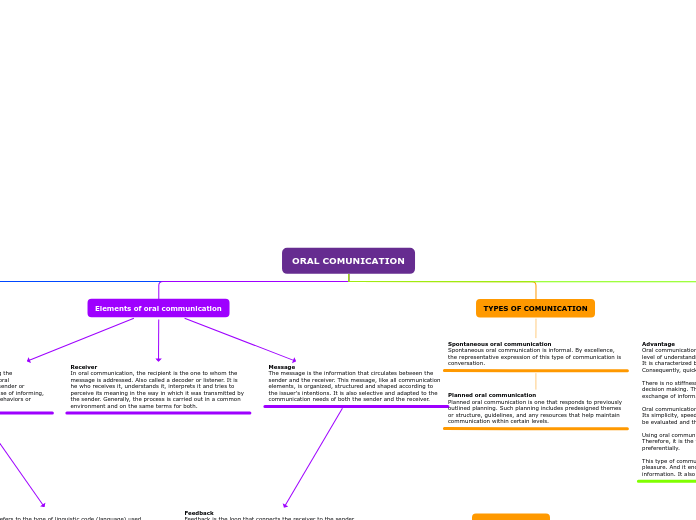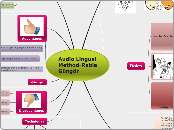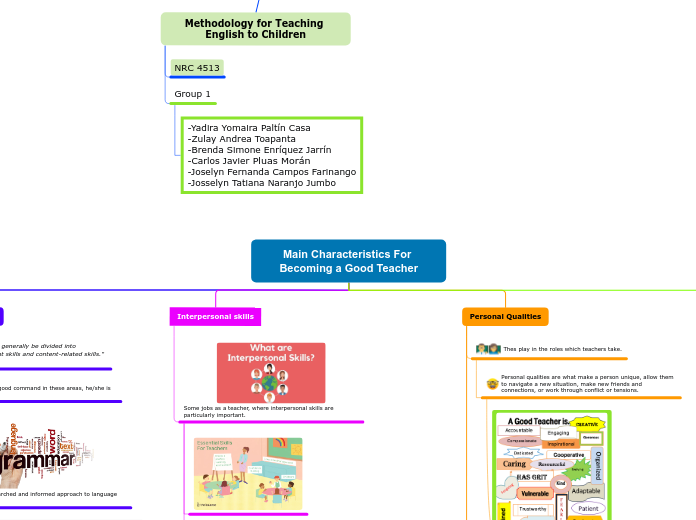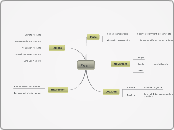por hector duque 4 anos atrás
267
Organigrama
Oral communication involves the exchange of messages through spoken language, utilizing the vocal organs such as lips, teeth, and vocal cords. This form of communication requires both a sender and a receiver who alternate roles, making it inherently bidirectional.









